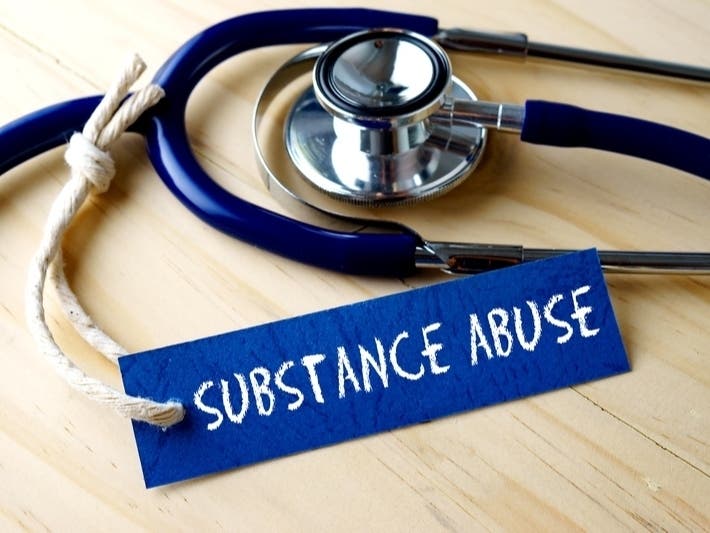Health & Fitness
As Pandemic Lingers In Michigan, Alcohol Abuse On The Rise
A local health official has seen an increase in alcohol use amid the coronavirus pandemic.

MICHIGAN — Alcohol abuse has increased during the coronavirus pandemic, but so has the number of people seeking treatment, according to local health officials dealing with the rise in abuse.
Andrea Orsini, the director of the Day One substance abuse program at Oakland Family Services, said several surveys have shown that alcohol use has increased since the beginning of the pandemic. She said the increase could be due to alcohol's accessibility and availability.
In some states — Michigan included — alcohol can even be ordered online and delivered to one's doorstep through shopping apps and other means.
Find out what's happening in Detroitwith free, real-time updates from Patch.
"Unfortunately, because of the pandemic and the associated restrictions and social isolation, it is easier than ever to hide struggles from people and there is only so much that can be gleaned via Facetime or Zoom," Orsini recently told Patch.
According to the CDC, 29 percent of people admitted in a survey to drinking more over the past year to cope with the stresses of “the new normal." Initially, surveys did not show noticeable increases in alcohol consumption patterns, Orsini said.
Find out what's happening in Detroitwith free, real-time updates from Patch.
"This is thought to be related to the overall sense of 'cautious optimism' that we would be able to rapidly address the spread of the virus and contain it effectively," Orsini said.
But as the pandemic and lockdowns continued, "the physical, emotional and financial landscape changed."
"Physically, we became increasingly isolated and public activities became worrisome, if not dangerous," Orsini said. "The longer we were forced to isolate and there were restrictions on businesses, the more economic and financial concerns began to infiltrate our professional and personal lives. The stress of 'employment uncertainty,' of social isolation and/or being cooped up with our families with fewer social outlets led to increased anxiety and uncertainty.
"For many people, the pandemic meant putting their regular coping mechanisms, like sports, dinner with friends, etc. on hold," Orsini continued. "In the absence of these activities, many adopted less effective coping mechanisms, like alcohol use."
Consumer reports suggest alcohol sales skyrocketed in 2020.
"As the pandemic wore on and stresses mounted, those who started using alcohol as a way to escape these pressures started building tolerance and drinking more," Orsini said.
Orsini said she has seen an increase in alcohol behaviors among people between the ages of 25 and 35, an age group commonly associated with difficulties effectively launching from parental households, struggling with debt and high rates of unemployment.
"The pandemic and its associated struggles compound the worries of this generation," she said.
Seeking Help During a Pandemic
While alcohol abuse climbed during the pandemic, referrals to alcohol abuse programs for treatment declined during the lockdown portion of the pandemic, according to Oakland Family Services.
But when things began to open up, the center noticed an increase in people seeking treatment.
"In our clinics, there was an uptick in terms of people coming into treatment when the COVID positivity rates were down, and people felt more confident that we were moving closer to normal," Orsini said. "Now, there is another dip – likely related to increasing infection rates and growing concerns about our ability to effectively address the host of issues confronting us."
Orsini said that because of the pandemic and the associated restrictions and social isolation, it is easier for people to hide their struggles with alcoholism from people.
"While it isn’t altogether uncommon for people to avoid seeking help until there are having difficulties at work or in relationships, because of our increasingly home-based lifestyle it is taking longer for some of these problems to become evident," she said.
Knowing What to Look For
Even amid the pandemic and separation from some friends and loved ones, Orsini said there are signs to look for when it comes to alcoholism. Someone battling abuse may show a lack of interest in activities or interest in things and people important to them, increased sleeping problems and irritability.
Day drinking also has increased, including when someone drinks while working from home, Orsini said.
"This new level of inhibition is an alarming trend for treatment providers," she said.
Orsini said people can seek treatment through many sources, including Oakland Family Services, by calling (248) 858-7766. People also can contact Alcoholic Anonymous online.
Get more local news delivered straight to your inbox. Sign up for free Patch newsletters and alerts.